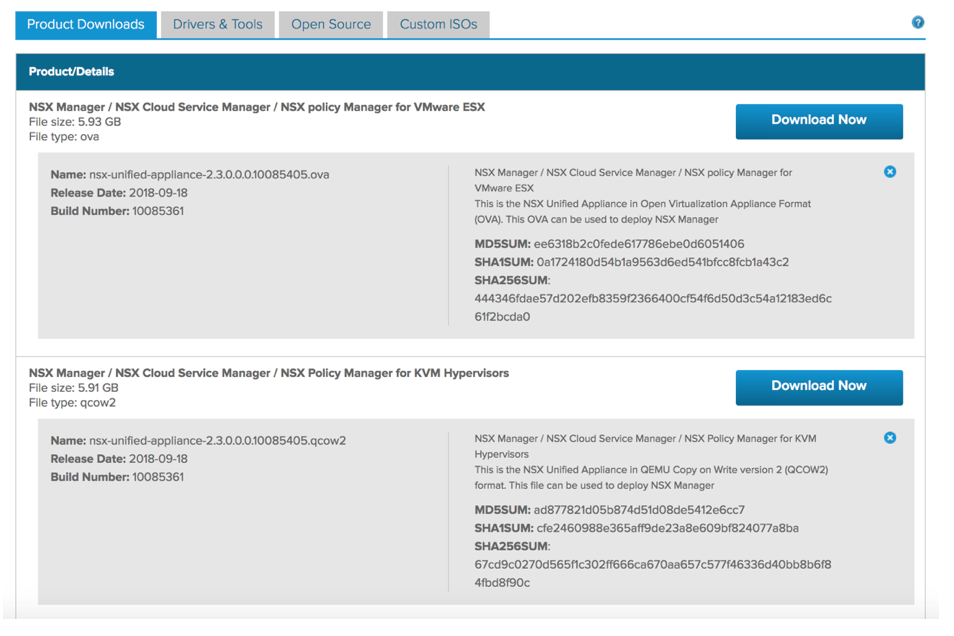We are very excited about the following key NSX Cloud features which are shipping as part of the latest NSX release – NSX-T Data Center and NSX Cloud 2.3.
Support for AWS
The 2.3 release adds support for native AWS workloads. This is a big step towards VMware’s pursuit for a truly hybrid cloud networking and security solution. NSX customers can now simplify and scale operations across a growing number of accounts, subscriptions, virtual networks, availability zones and regions in AWS, Azure and private cloud. Furthermore, this opens the doors for adding more networking platform capabilities in the future – look out for more information in our future blogs.
Free Visibility into Public Cloud Workloads
If you have NSX-T Data Center deployed within your on-premise environment, it only takes one additional VM to extend your visibility to include all your native public cloud workloads, and no additional cost. Here is how to do it: In the download page, under the Product Downloads section, you will see the link to download “NSX Manager / NSX Cloud Service Manager / NSX Policy Manager”. This is the NSX Unified Appliance which can be configured as an NSX Manager, or NSX Cloud Service Manager or NSX Policy Manager. It is available in both OVA and QCOW2 format. So, one can download it to an ESXi or KVM host.

If you are an existing NSX Data Center user, you already have a unified appliance deployed with the “NSX Manager” persona. For public cloud workloads visibility, you can continue to use the same NSX Manager and NSX Controller that you have already deployed for on-premise. You just have to deploy another instance of the Unified Appliance with the “Cloud Service Manager” persona. You do not need an NSX Cloud license to deploy and use Cloud Service Manager(CSM) for visibility into public cloud workloads. You need NSX Cloud licenses once you’re ready to actively manage and enforce policies within your public cloud workloads. This is a good starting point if you want to get a peek into your public cloud workloads and see what’s out there. Once you have the CSM deployed and operational, go to the CSM, configure the cloud credentials as shown below and you will immediately be able to query your AWS and Azure accounts for your public cloud workloads. You do need to ensure that CSM has external internet connectivity. If you use a Proxy server within the datacenter, CSM already supports configuring a proxy. More details on CSM deployment and configuration are in the product documentation.

I use NSX Data Center for vSphere, do I get public cloud visibility for free as well?
Oh yeah! NSX Data Center for vSphere and NSX-T Data Center can co-exist. If you are an existing NSX Data Center for vSphere user and would like to leave the on-premises environment alone, download and install the Unified Appliance for NSX-T Data Center twice. Once with “NSX Manager” persona and once with “Cloud Service Manager” persona. Voila, you should be good to go!
That ain’t all, there is more to the NSX Cloud 2.3 Release. VPN support, Multi-Region Support and Zero-touch deployment for the NSX agent in MSFT Azure are some of the other cool features which have found a place in NSX Cloud 2.3. You can find more details in the release notes. We will be sending out more updates your way to talk about all these other cool features. But for now, get a free peek into your public cloud workloads!
If you missed our previous blog posts on NSX Cloud, you can find them here.
The post NSX Cloud 2.3 – Support for AWS, Free Visibility into Public Cloud Workloads & more! appeared first on Network Virtualization.